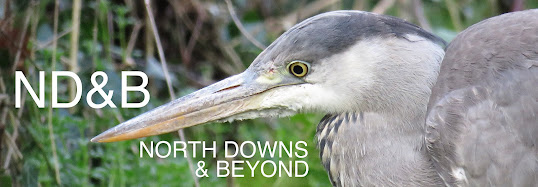Langley Vale update
Those of you who are regular visitors to this blog (and thank you if you are) will by now be familiar with Langley Vale Farm, an area on the Surrey downs that is blessed with a terrific arable flora. I do go on about it quite a lot...
To cut a long story short the farm has been purchased by the Woodland Trust (WT) who are managing the land and aiming to have 60% of it as woodland - currently this figure stands at 20%. There have been many meetings; environmental impact assessments made; working parties formed; correspondence sent and received. I have been heartened that these processes have alerted the WT to the presence of the rare flora and that it has been recognised by them as not only of national importance but also in need of protection. The WT, in consultation with Plantlife, have agreed to implement plans to ensure that it survives. I have been impressed by their willingness to do so, as the WT's existence is not to be the custodians of rare wild flowers. They could have easily looked the other way.
This morning I revisited. Since my last visit an awful lot of fencing has sprung up. Most of the fields that are 'good' for arable plants have been enclosed (as in the photo above, at the Red Hemp-nettle site), which at first alarmed me. My later enquiries suggested that this is in preparation for grazing stock to arrive. I met at the farmhouse with a group of interested parties that are looking at setting up a bird monitoring group. This was led by Kate Harvey (from the Woodland Trust) and Ken Smith (ex-RSPB). Ken spoke about Heartwood, a WT site in Hertfordshire that was once arable farmland and the monitoring that has been ongoing there. Kate expressed a hope that such an undertaking can be started here. That undertaking is already underway but without a formal base or a centralisation of effort. It's all a bit here and there at the moment, and that includes my own records, being sent to various natural history county recorders and the BTO's Birdtrack.
As for the Langley Vale Lapwings... the 4-6 pairs that graced the slopes will be history I fear. Their favoured fields are to be planted up and those that are left are not really suitable. Ken did make the valid point that they prospered here largely due to the presence of a shooting syndicate that kept predators under control. When the farm was sold the shoot was closed. I can understand this, but the planting up of the Lapwings favoured fields is hardly a helping hand. We may still see and hear the odd displaying bird each spring but it will be but a brief reminder of what went before. It's a crying shame - but again, the WT are not the RSPB and - whisper it - the arable flora is of far more importance in my humble opinion.



Comments